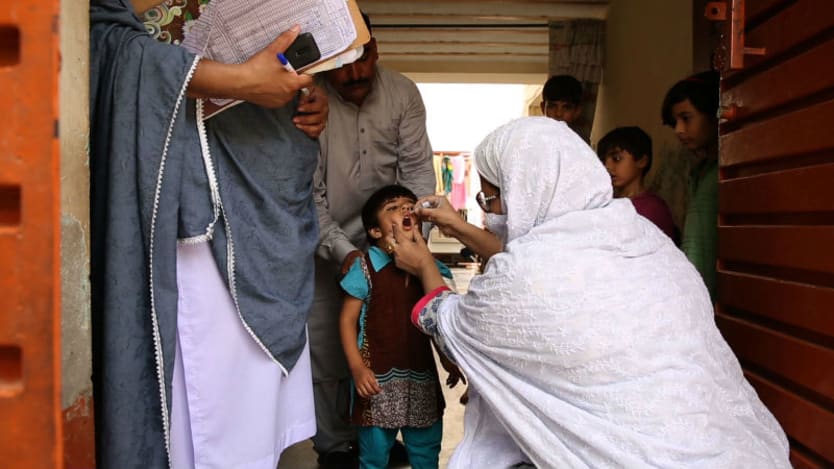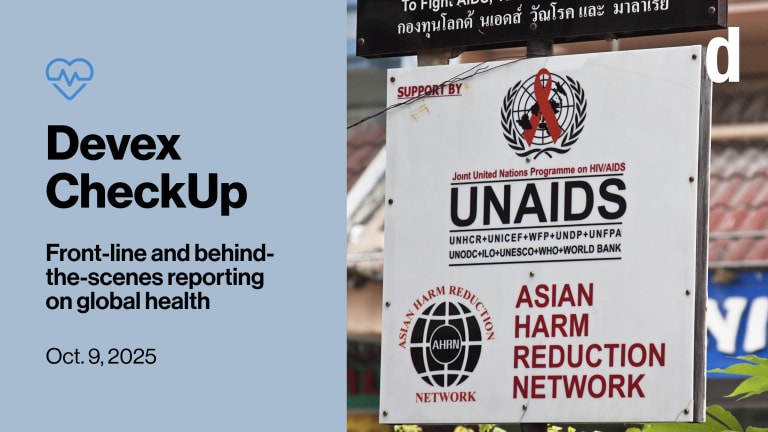WHO says international spread of polio still a public health emergency

NEW YORK — The international spread of polio virus continues to be a problem four years after the WHO’s Emergency Committee designated it a public health emergency of international concern. The committee on Friday announced it would extend the emergency by another three months, after data showed an uptick in the number of polio cases worldwide in 2018, including a doubling in Afghanistan.
The decision was made after the committee met at World Health Organization’s headquarters in Geneva on Nov. 27 to review the data on wild poliovirus cases and circulating vaccine derived polioviruses. The committee was also concerned that weakened immunization systems in several regions in Africa and Pakistan were leading to an increased risk of outbreaks.
“We are a whisker away from eradicating polio worldwide,” committee chair Helen Rees said in a telephone press conference. “But the progress we have made is fragile. The risk is high that all the effort could be lost and we could see a resurgence, which would mean 300,000 children paralyzed every year, plus deaths. We certainly can’t allow that to happen.”
The committee noted that although temporary recommendations put in place in 2014 had limited the circulation of the wild virus within Afghanistan and Pakistan, efforts to eradicate it were stymied by a number of challenges, most significantly the number of children who could not be vaccinated due to deteriorating security or refusal. Rees attributed this to poor infrastructure, difficult access, resistance, and population movement across the border between Afghanistan and Pakistan.
In addition, the committee noted that routine immunization rates were low in Pakistan, which could explain why the situation had stagnated, with as many cases in 2018 as there were in 2017. “It’s simple: To make sure we reach our end game, we have to get into areas we haven’t gotten into, so the virus has nowhere to hide,” Rees said.
The committee expressed concern that after a 10-month period of no international spread of wild poliovirus between the two neighbors, there had been cross-border spread in both directions over the past three months.
In Afghanistan, the number of cases had nearly doubled in 2018, going from 10 in 2017 to 19 so far, due to worsened security and problems of access. Director of WHO’s Polio Eradication program Michel Zaffran noted that the Taliban’s ban on house-to-house vaccinations rendered 1 million children inaccessible in Kandahar and Helmand Province in south Afghanistan, bordering Pakistan. He said that an increased number of sewage water samples in Afghanistan had tested positive for the wild virus, which was concerning. “This means that even if there are no cases, people are contaminated and can shed the virus,” he said.
WHO Director-General Tedros Adhanom Ghebreyesus and two members of the board are expected to visit Kabul and Islamabad to find ways to reach the high-risk population that shuttled back and forth between the two countries.
There was more positive news from Nigeria, Zaffran said. “For more than two years, we haven’t been able to detect the virus in accessible regions there.” However, there were continued difficulties in reaching children in the troubled Borno region.
In addition, the committee noted that there were continuing outbreaks of circulating vaccine derived polioviruses in severely under-immunized pockets in Africa, including Somalia, Niger, and the Democratic Republic of the Congo.
“This is an extraordinary event. This is the only time in all our lifetimes that we’re close to the eradication of another major infectious disease — after smallpox,” said Rees. The committee will meet again in three months to review the latest data.
She added that a state of international emergency was an important tool in “finishing off the job” of worldwide eradication. She said that she hoped it could also help ward off donor and government fatigue.
Search for articles
Most Read
- 1
- 2
- 3
- 4
- 5






